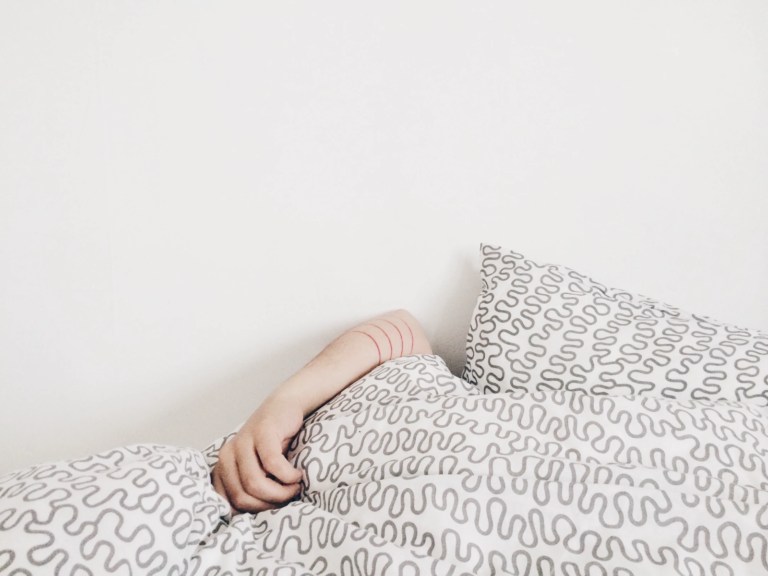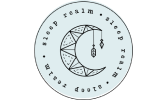What Causes Drooling?
You have probably wondered, “Why do I drool when I sleep?” You’re not alone in asking yourself that question. About one in ten people complain about drooling while sleeping. It’s a fairly common issue that can be embarrassing. Nobody wants to wake up with drool running down their chin.
You shouldn’t be embarrassed, though. It’s natural to drool once in a while. There are a lot of answers to the question, “Why do I drool in my sleep?” Here are just a few of them.
- Allergies
- Sleep positions
- Medication side effects
- Sleep Apnea
The meaning of drooling in the dictionary is “to drop saliva uncontrollably from the mouth.” The reasons you might be drooling or slobbering are more common than you might think.
Allergies
This might sound surprising, but allergies can cause excessive drooling. This is because your sinuses get clogged, making it difficult for you to breathe properly. You have to open your mouth while you sleep, making drooling in sleep easy to do. You can look into remedies for sinus relief or possibly take sinus medication.
Sleep Positions
Adjusting your sleeping position can do wonders for drooling problems. When you’re on your side, any excess saliva that builds up in your mouth is very likely to be pulled down by gravity, causing you to drool. Try sleeping on your back instead, making it more difficult to drool.
Medication Side Effects
You might be asking yourself, “Why is my mouth producing so much saliva suddenly?” An excellent place to start when you’re looking for answers is with medication. Has your doctor prescribed something new to you? If so, that could be the source of the problem.
There are certain antipsychotic drugs, as well as antibiotics, that can cause excess saliva. The side effect is most likely worth it when you compare it to the benefits it offers. After all, there are things you can do to try to prevent yourself from drooling. It’s not the end of the world.
Sleep Apnea
One of the more common sleep conditions people can have is sleep apnea. It’s when a person stops breathing in their sleep. It can actually be quite dangerous. If you suspect you might be suffering from sleep apnea, it’s important to consult a doctor. Here are some of the signs:
- Waking up with a sore throat.
- Feeling drowsy, as though you didn’t even sleep.
- Snoring incredibly loudly, to the point you are disturbing others.
Difficulty focusing during the day because you’re foggy-brained.
How to Stop Drooling

Even if you are suffering from any of the things mentioned above, you still have hope. You can learn how to stop excess saliva in its tracks and get back your dignity.
Treat Your Sinuses
If your sinuses are swollen or closed off, it can wreak havoc on your breathing. When you can’t breathe through your nose, you have no choice but to breathe through your mouth. This means all of the saliva that builds up is more likely to fall out of the corner of your mouth, down your chin, and onto your pillow. Treat your sinuses by trying the following:
- Nasal decongestants
- Antihistamines
- Corticosteroids for inflammation relief
- Allergy shots
Change Sleep Positions
One of the main answers to “Why do I drool?” is the way you sleep. A lot of people are side-sleepers. Without thinking much about it, it’s easy to sleep in the position that’s most comfortable, without realizing how it might impact things like the way we process saliva.
When you’re on your side or your stomach, the saliva is pulled to your pillow by gravitational force. It makes complete sense that you would wake up with a wet pillow. Simply changing this habit and sleeping on your back instead, will likely help you at least see an improvement in the amount of drooling you do each night.
Get Botox
This might sound extreme, but it’s really not. Botox is becoming more and more common. It’s not the exclusive, taboo thing it once was. It’s now a mainstream method of taking care of all sorts of medical ailments. Botox isn’t just for looks anymore. It can be used to treat many things, including the following:
- Fine lines and wrinkles
- Excessive sweating
- Muscular disorders
- Migraines
- Excessive saliva
- Bladder disorders
- Bowel discomfort
Look into Medication
There are medications that help with excessive saliva problems. They can be prescribed by your doctor. However, keep in mind that having medication solve one problem can cause others. Some common side effects of the medication include moodiness, dizziness, itchy eyes, hyperactivity, decreased sweating, and more. You’ll have to check your specific medication for exact symptoms.
Perhaps you can try one of the following medications:
- Glycopyrrolate – This is a medication that blocks nerve impulses in order to decrease the production of saliva.
- Scopolamine (or Hyoscine)– This prescription medication blocks the nerve impulses, so they cannot reach the salivary glands.
CPAP Machine
Should you find out you are suffering from sleep apnea; then you’ll likely be prescribed a CPAP machine. This is a device that goes over your nose and opens up your airways so that you’re better able to breathe during the night. Don’t worry if you’ve seen one in the past and are concerned about their ridiculously monstrous size. They have come a long way in recent years and actually come in far more discreet designs now.
Takeaway
Now you know how to stop drooling while sleeping. You don’t have to deal with this forever. Even if you have sleep apnea, allergies, or are taking medications that impact the amount of saliva you produce, there are things you can do.
Perhaps you can get a prescription for the drool. Maybe you can learn to sleep in a different position, get botox, or treat your sinuses. Whatever you decide, one of these methods should at least lessen the problem. That’s good news for both you and your pillow.



30 Replies to “How to Stop Drooling in Your Sleep: Causes and Solutions”